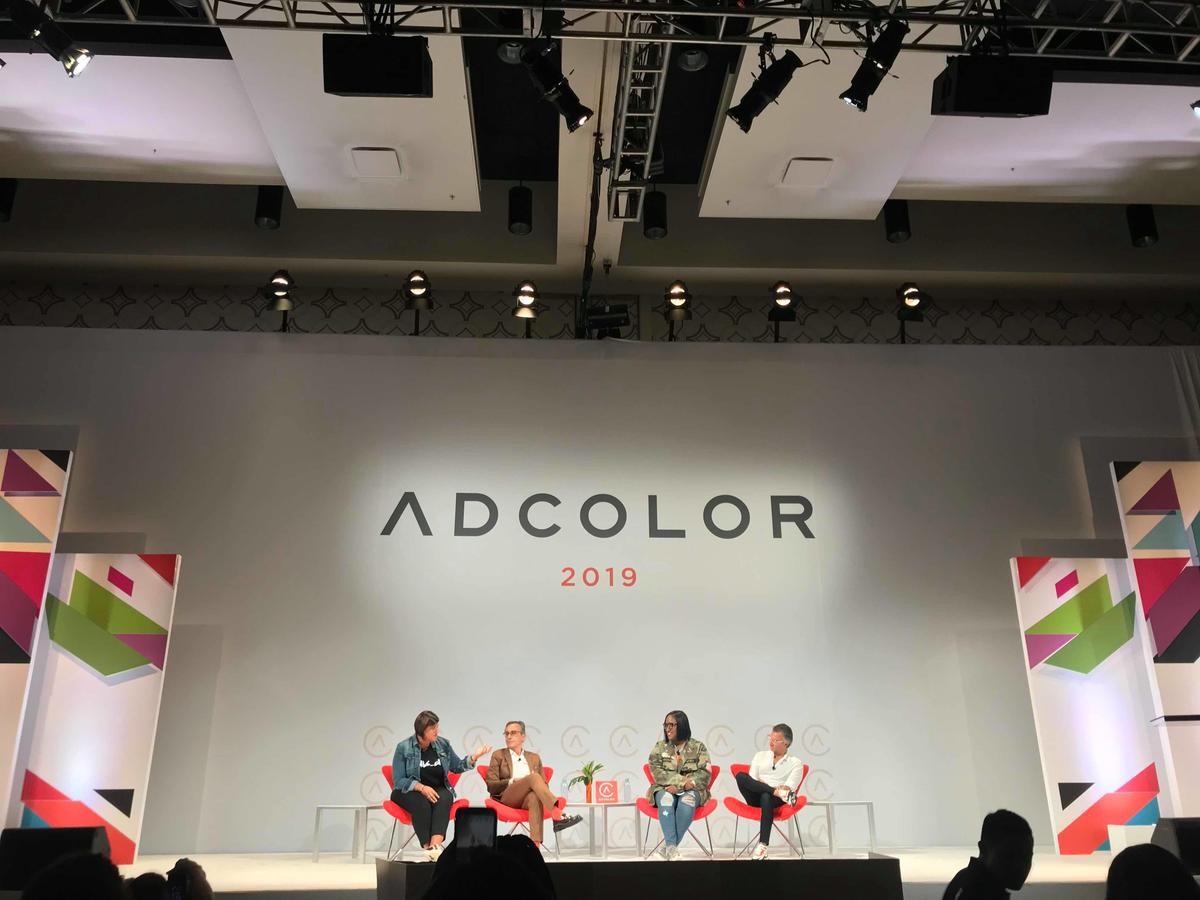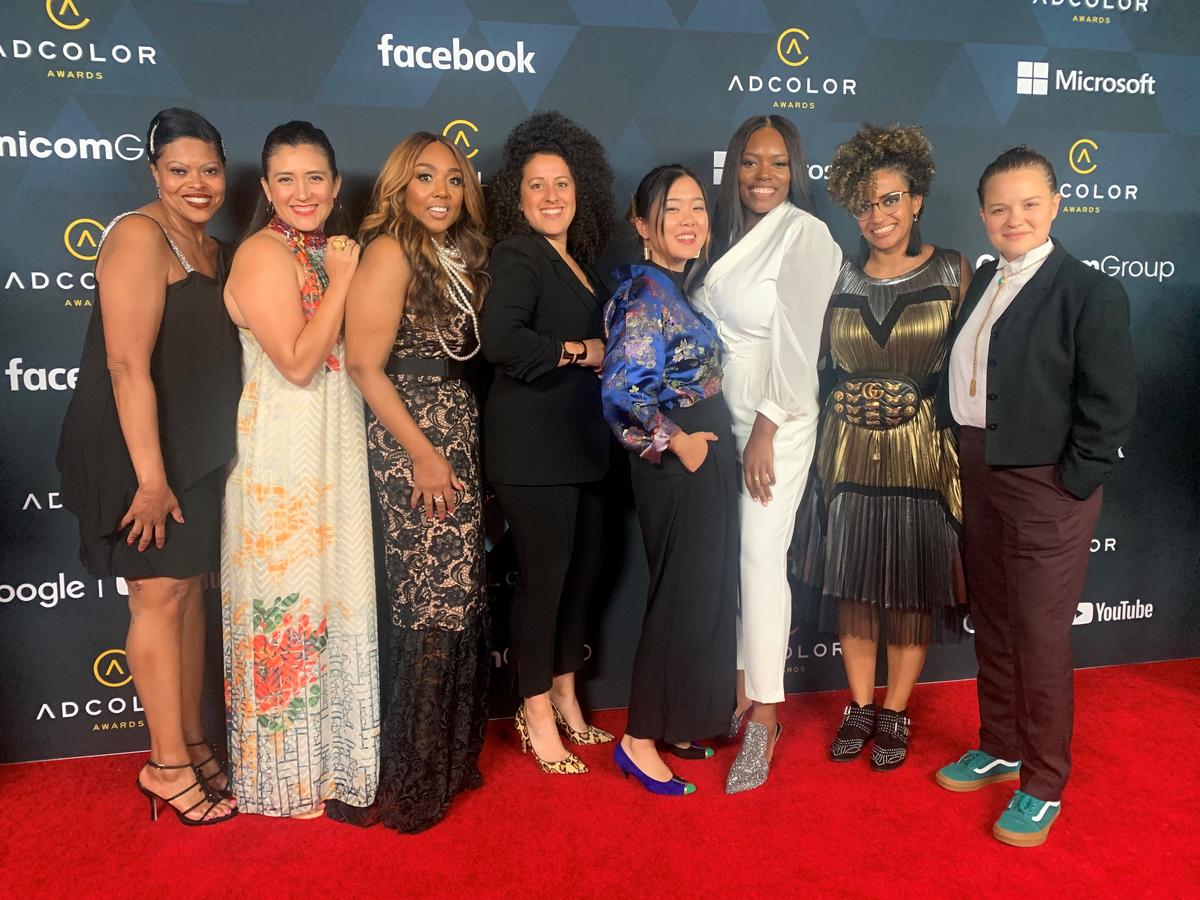It was an honor to be part of this year’s ADCOLOR, a weekend celebration of diverse creative talent, from interns to the C-suite.
As an ADCOLOR Future, I was recognized as best-in-class rising talent. I’m part of a class of 30 professionals, selected from an applicant pool with a 7 percent acceptance rate, who completed a weeklong program to cultivate that talent. The Futures class was provided full sponsorship to attend the ADCOLOR Conference & Awards, intensive career training and mentorship, and other activities.
Through the conference programming, individuals and organizations were encouraged to RISE UP, or go above and beyond their responsibilities. Then we were given the tools to REACH BACK and pass the opportunities on.
There were several takeaways from my week in Los Angeles with ADCOLOR. A few highlights include:
Attending the panel “Broadening the Binary: Expansive Gender Identities in Media and Culture.”
As someone actively involved with cultural initiatives within and beyond the industry, I’d never seen a panel devoted entirely to nonbinary and trans creative individuals. What companies like Facebook are doing to make their nonbinary and trans talent feel welcome is long needed across the media, tech, and marketing industries.
As nearly half of Gen Z identifies as queer, it’s increasingly important we understand the language around which to support queer and trans folks. Resources the panelists suggested for learning more include the UCSF Center of Excellence for Transgender Health, the WPath Standards of Care, and scouring social feeds—especially Twitter and Instagram—where queer people are already sharing their experiences.
Hearing from people with disabilities share their experiences working in media.
Storm Smith, a former art director at BBDO, and Liz Jackson, founder of Disabled List, both spoke about how they can be supported throughout their careers and personal lives. Given that nearly one in five people in the U.S. have a disability, we each probably know someone this topic hits home for, and can do more to increase access for our neighbors and loved ones.
To better understand their perspectives, Jackson suggested we follow these influencers, activists, and researchers: @VilissaThompson, @Imani_Barbarin, @DisVisibility and @jarvirdi. I also recommend checking out the initiative Lights! Cameras! Access!, a program which gives people with disabilities mentorship, resume reviews and career advice to get into entertainment and media.
What’s noteworthy is that ADCOLOR didn’t just put Storm Smith in a panel about disability; rather, they integrated her into a conversation on women of color in the workforce. This demonstrates that she isn’t just someone to talk to about one specific topic, but she is a leader in many different conversations. Things that make us different aren’t the only thing we should be asked to talk about, and this move by ADCOLOR truly showcased how Storm is a person with many different things to share.
I learned that it’s imperative we continue to discuss, reflect upon, and act with the following in mind:
- Be an ally: At every level, but especially for those managing employees, it’s important to be a proactive ally. Ask your reports, coworkers, and teammates for examples of times they’ve felt supported, when they wish they had more support, and how you can provide more support based on their experiences. Show your team that ERG events, discussions, and events outside of the agency are a priority, and worthwhile talking points.
- Show that diversity and inclusion isn’t an isolated topic: In an industry that has long needed change, we need to be agents of this change. Diversity and inclusion is not just an HR topic or something to mention in passing. As Facebook’s Global CMO Antonio Lucio said during the conference, there is more than enough evidence to show the business case for fully integrating diverse audiences in your work. Organizations like ADCOLOR are valuable resources in continuing to inspire how we show up and showcase how we can continue to think about and represent multicultural consumers, employees, and culture.
Gloria Lin is a community manager in the Digital practice, New York.



